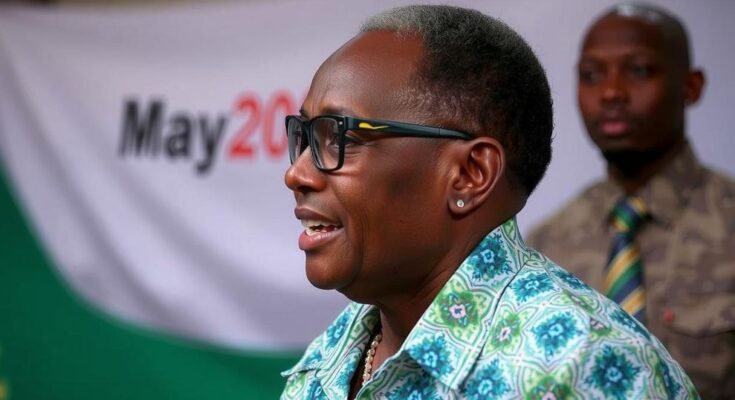Following the recent contested elections, Maputo, Mozambique, is facing a resurgence of fear and chaos marked by looting, resource shortages, and a prison break. The ruling Frelimo party’s confirmation in election results has incited public unrest. Community members are responding by forming patrols to guard against perceived threats, highlighting the deeply ingrained fear pervading the city.
Maputo, Mozambique’s capital, is grappling with lingering fear and disorder following the tumultuous aftermath of the contested election results. Despite gradual attempts to restore normalcy, residents are haunted by incidents of looting and vandalism that erupted after the ruling Frelimo party was confirmed as the election victor. As essential resources such as food, fuel, and medications dwindle, a significant prison break has exacerbated residents’ anxieties, leading to increased community vigilance.
Many citizens have expressed their fears, recounting experiences of being awoken by neighbors warning of looming dangers, even in the absence of any visible criminals. For instance, Maria Amelia, a resident of Matola, recounted, “When I went out, I saw my neighbors, armed with knives to defend themselves against these invaders. But I didn’t see anyone. I was terrified.” Similarly, Armand Tembe cited a growing sense of dread, noting, “I haven’t seen any criminals outside. But it’s starting to get scary. I don’t know where the country is going.”
Experts like Borges Nhamirre have pointed out that validated reports regarding these threats are lacking, suggesting the government may be trying to fabricate a crisis in response to the public unrest following the election. The opposition leader Venancio Mondlane has publicly condemned the results, decrying them as fraudulent, inflaming tensions that already resulted in significant casualties in riots that claimed over 125 lives.
Although signs of life appear to be returning to Maputo, with makeshift barricades being dismantled and military presence on the streets, residents remain on edge. Many venture out cautiously, seeking basic essentials. Isabel Rocha, a local, lamented, “The bakeries have been closed for four days. In fact, we lack everything. Even the small grocery stores are closed.” Further exacerbating the situation, Tomas Panguene shared his struggle to procure necessary medications amidst the chaos, reflecting the dire circumstances faced by the populace in the wake of the conflict.
The situation in Maputo follows a contentious election process wherein the ruling Frelimo party, which has held power for fifty years, faced allegations of electoral fraud from opposition leaders. The confirmation of the election results ignited widespread riots leading to over 125 fatalities, presenting an unstable atmosphere. The recent escape of prisoners from a maximum-security facility has added another layer of complexity and fear within the community, compelling residents to form neighborhood patrols amidst reports of potential violence.
In conclusion, Maputo’s residents continue to navigate a climate of fear and uncertainty following the contested election results. While instances of violence and looting have tapered, the impact of such events coupled with dwindling resources is palpable. Community members remain vigilant, reflecting deep-seated concerns about personal safety and the overarching political situation in Mozambique. The aftershocks of electoral outcomes are visibly straining the community and necessitate a comprehensive response to restore stability.
Original Source: www.barrons.com




